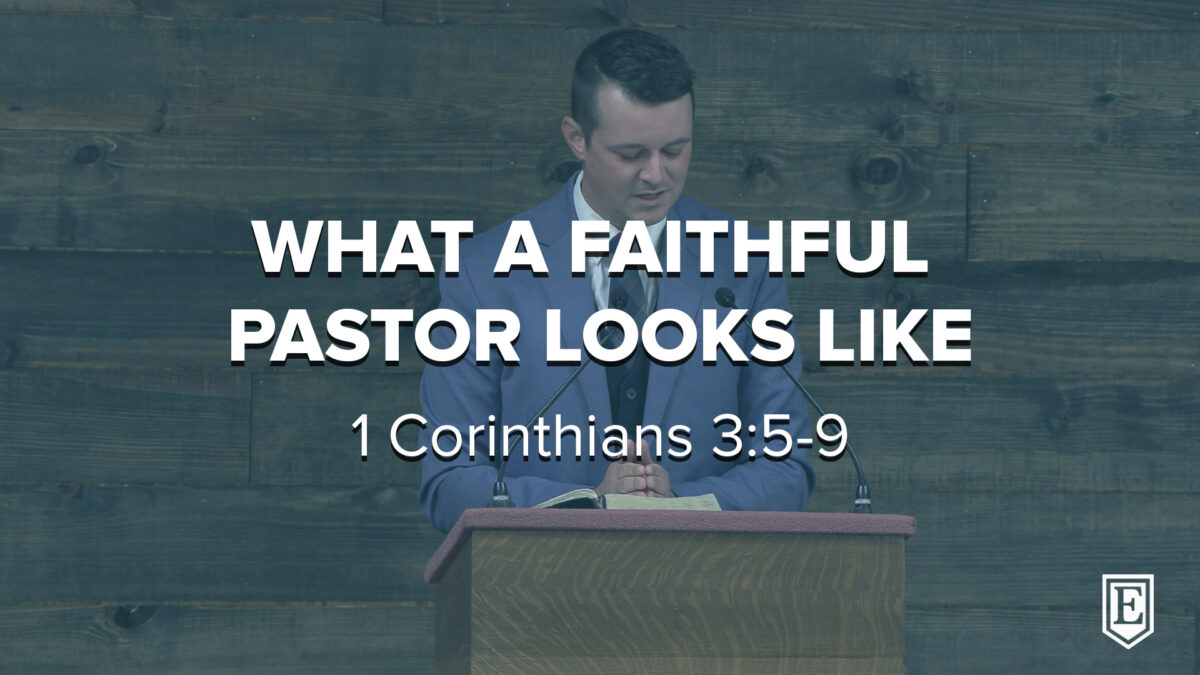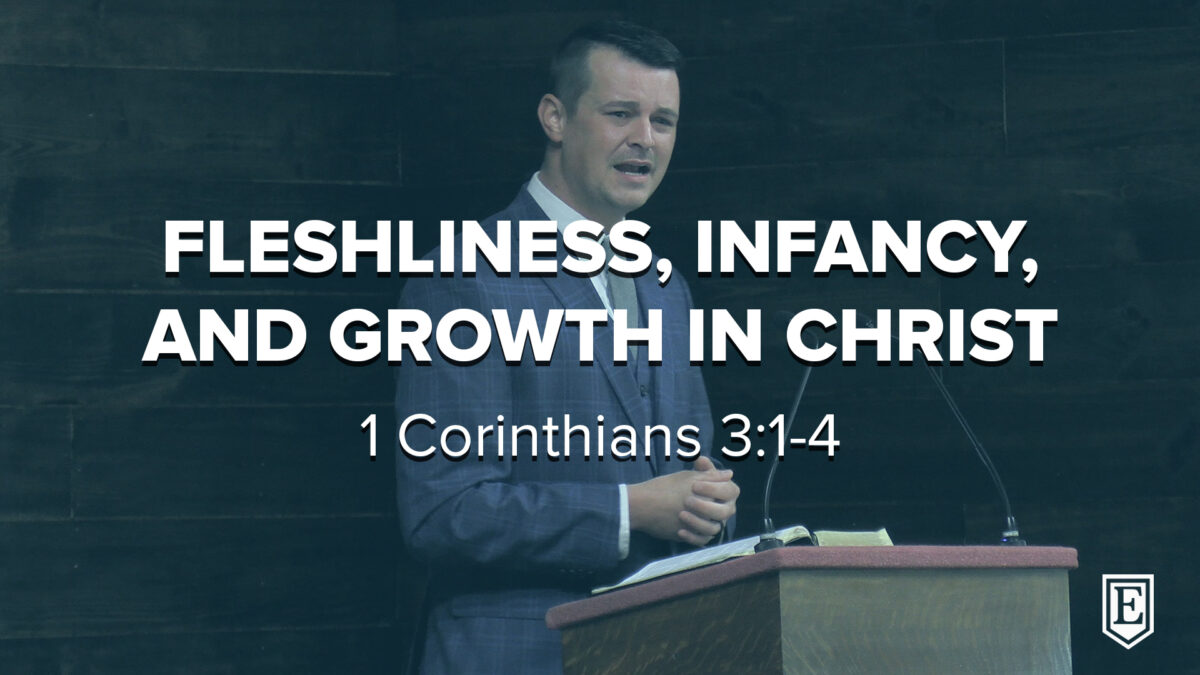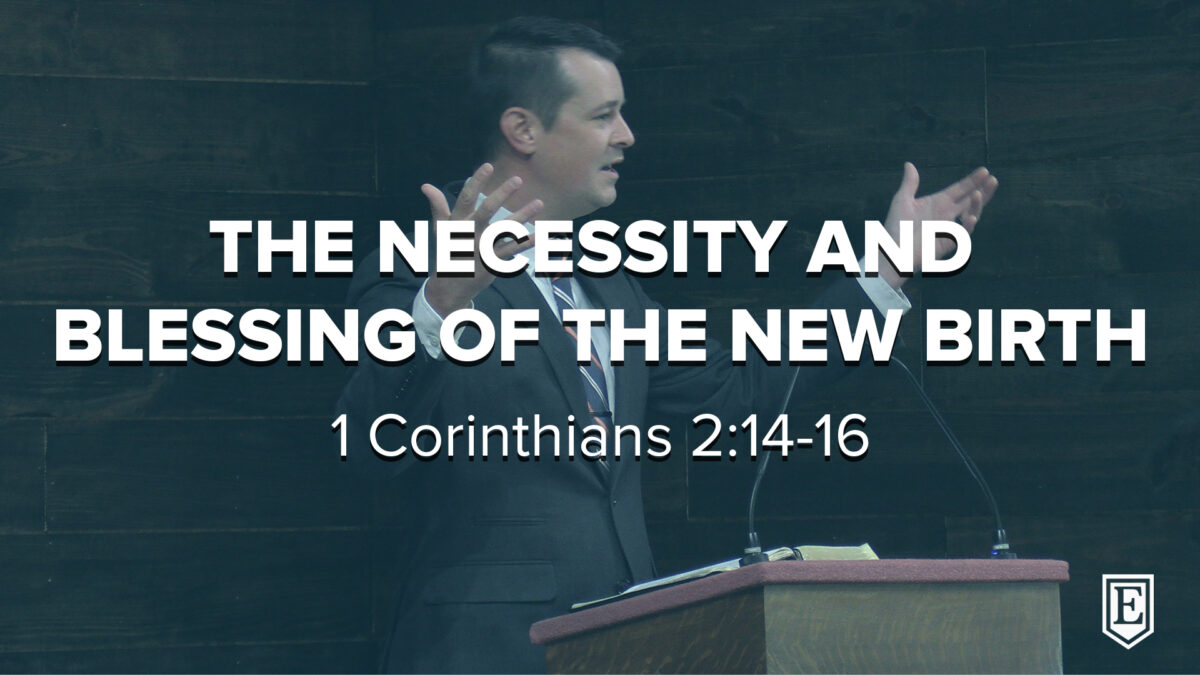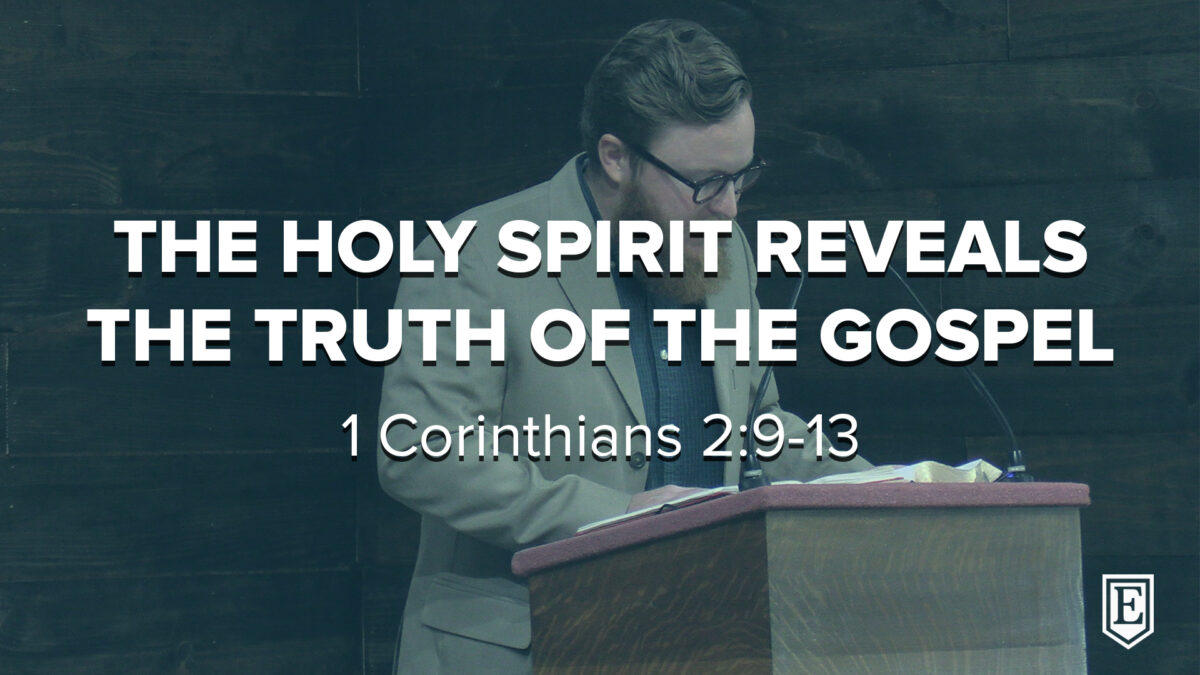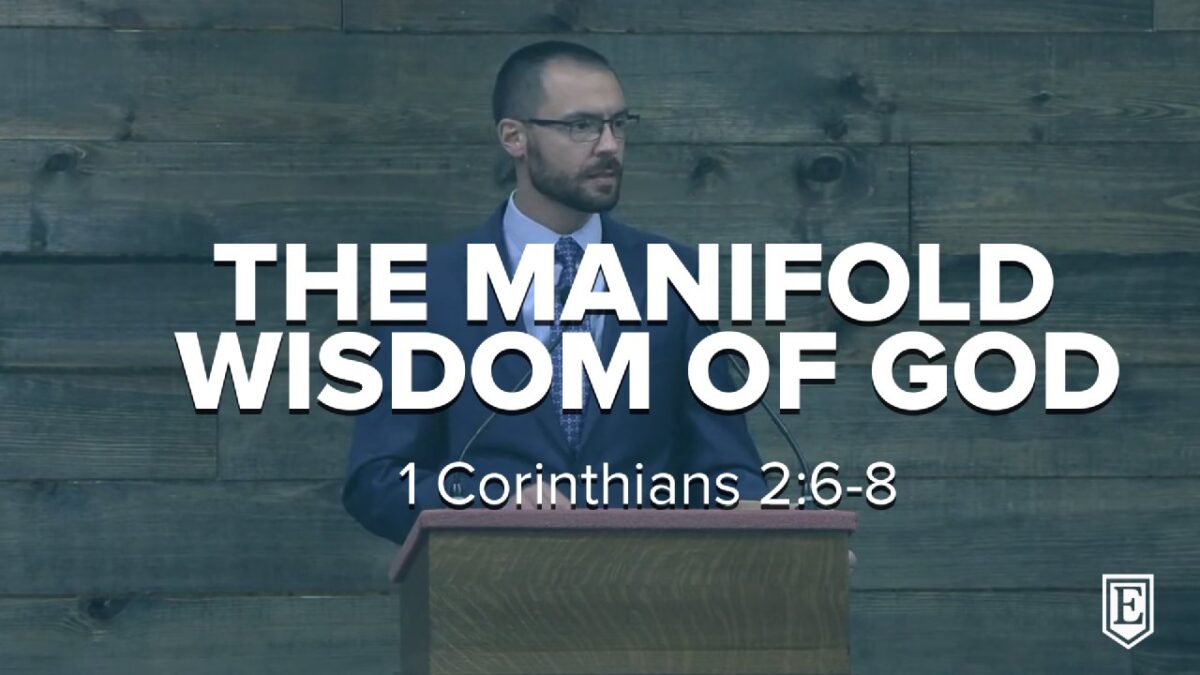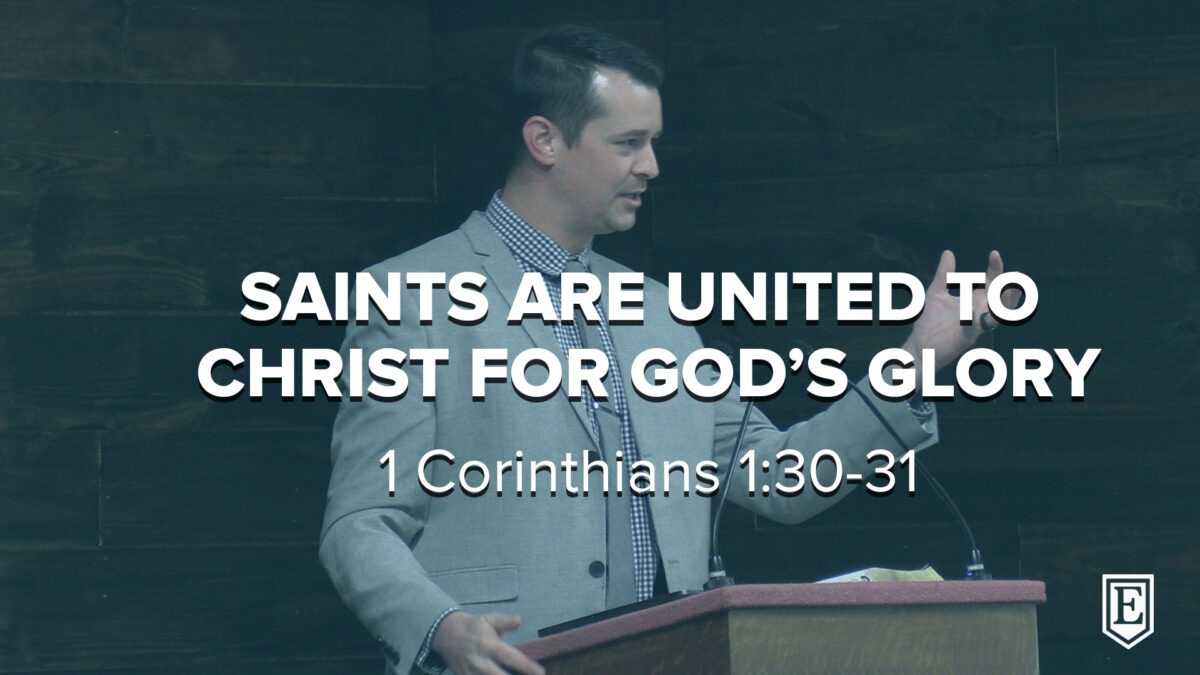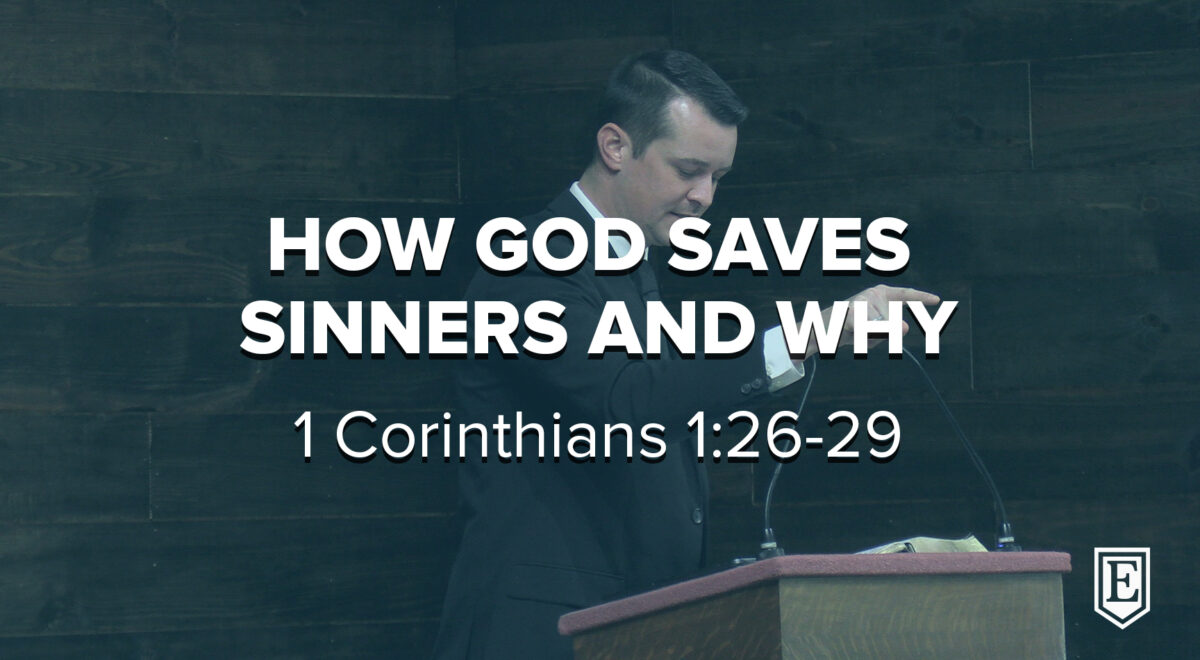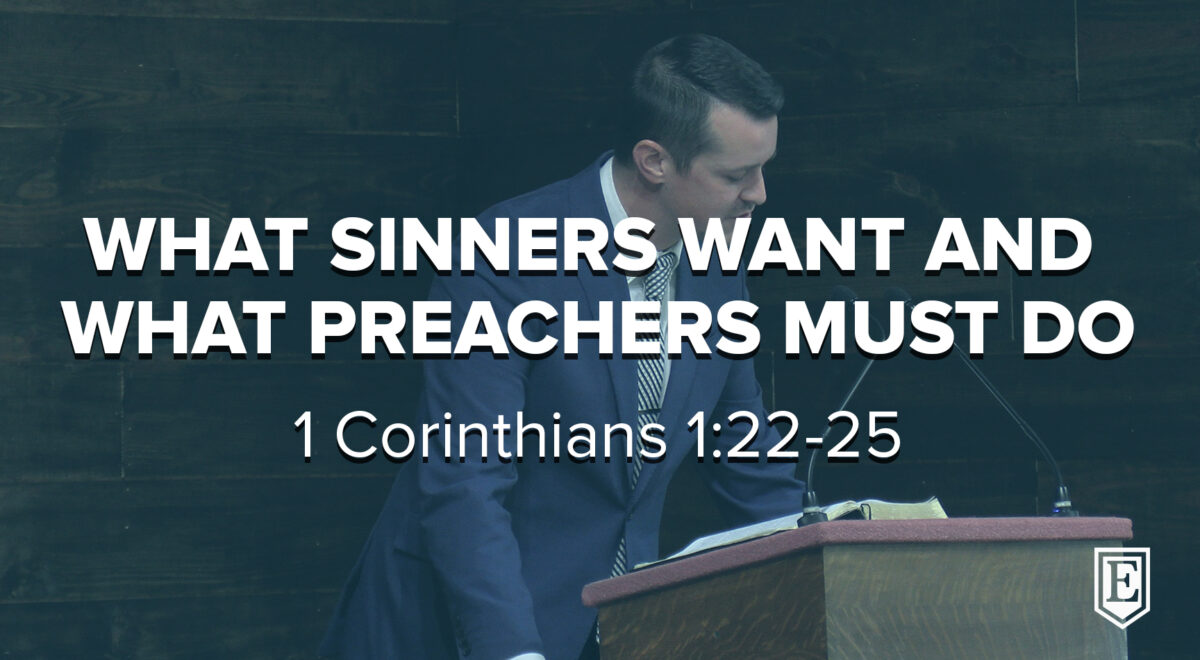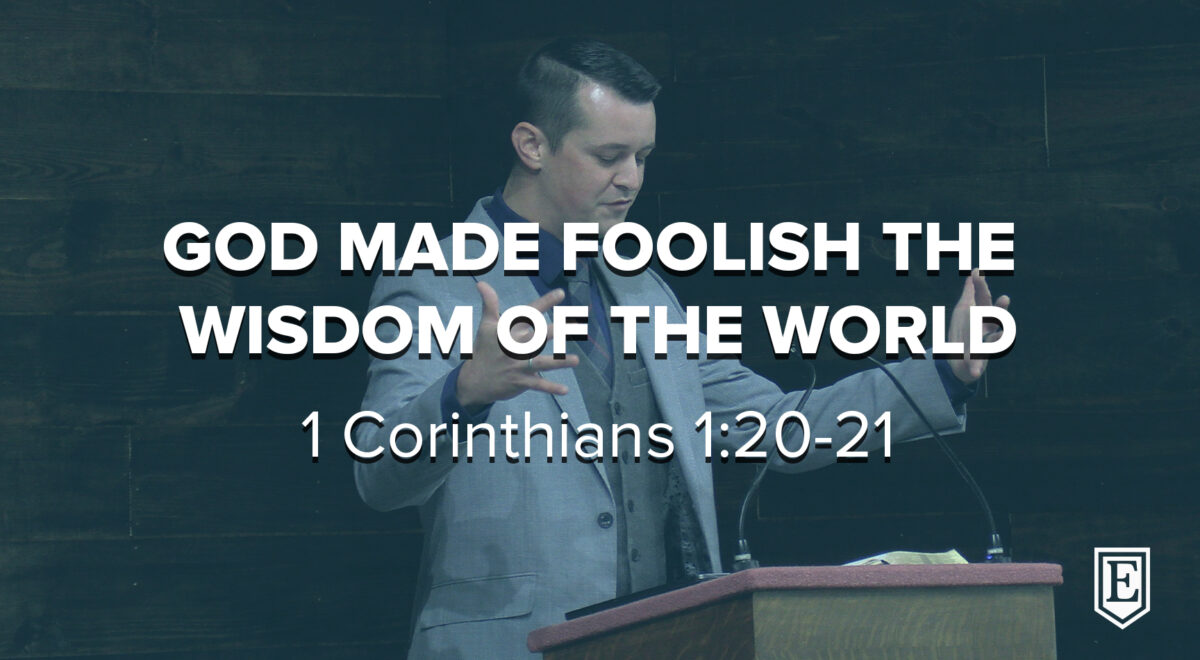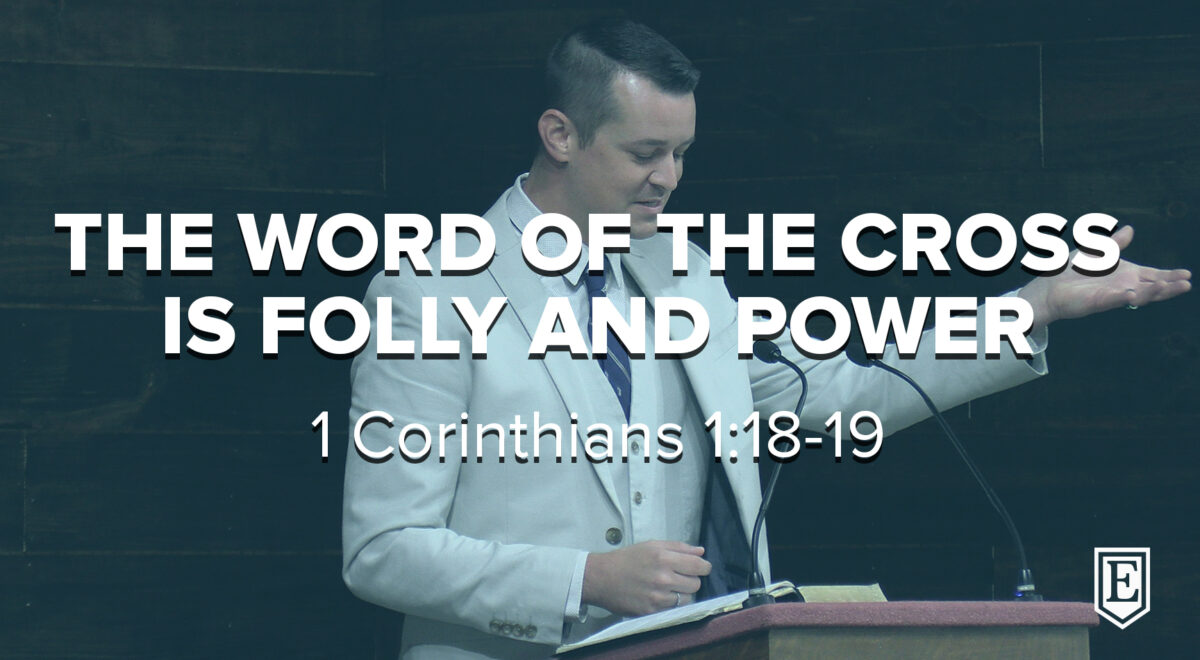OUTLINE
I. WHAT IS THE WORD OF THE CROSS? (v. 18a)
“The word of the cross” is essentially this: We are so wicked that Jesus had to die, and so loved that He was willing to.
I) Though God made man upright and blessed us with holiness, righteousness, and knowledge, we used our free will to rebel against Him and, in Adam, we all sinned. (Genesis 1-3; Ecclesiastes 7:29; Ephesians 4:24; Romans 5:12)
II) “The wages of sin is death.” (Romans 6:23; Genesis 2:17; Ezekiel 18:20)
III) “Without the shedding of blood there is no forgiveness of sins.” (Hebrews 9:22; Leviticus 17:11; Leviticus 16)
IV) “Jesus Christ came into the world to save sinners” by willingly “laying down his life” for all who would come to faith in Him. (1 Timothy 1:15; John 10:18)
V) “There is salvation in no one else” (Acts 4:12)
II. WHY IS THE WORD OF THE CROSS FOLLY TO THOSE WHO ARE PERISHING? (v. 18a)
I) The word of the cross is folly to some because they are fools themselves, saying in their heart “there is no God” (Psalm 14:1)
II) The word of the cross is folly to some because they do not think God will judge them for their sin (Psalm 10:13)
III) The word of the cross is folly to some because they presume on the goodness and patience of God (Romans 2:4-5)
IV) The word of the cross is folly to some because they have their minds set not on the things of God, but only on the things of man (Matthew 16:22-23)
V) The word of the cross is folly to some because they think they are basically good, and therefore they have no need for a crucified Savior (Mark 2:16-17)
VI) The word of the cross is folly to some because if they cannot earn heaven by their works and receive some glory for their actions, they will not have it (Galatians 2:21)
VII) The word of the cross is folly to some because it beckons them to take up their own cross and follow the crucified King (Matthew 16:24)
VIII) The primary reason the word of the cross is folly to those who are perishing is because they love their sin and do not want to give it up (John 3:19-20)
III. WHY IS THE WORD OF THE CROSS THE POWER OF GOD TO US WHO ARE BEING SAVED? (v. 18b)
The word of the cross is the power of God to us who are being saved because God, in His great mercy, by His Spirit, transformed our dark hearts that once loved sin. God abolished all of the foolish reasons that led us to see the cross as folly, therefore we now see and trust in Christ and His cross as the power of God to save us.
I) The word of the cross is power because it announces that we who believe have been forgiven of our sins (Ephesians 1:7)
II) The word of the cross is power because it properly motivates we saints to keep killing our sin and therefore keep growing in holiness (Colossians 3:3-5)
III) The word of the cross is power because it reminds believers that because Christ was condemned in our place, there is now no condemnation for us (Romans 8:1)
IV) The word of the cross is power because it assures us that Christ paid far too high a price for us to ever leave us or forsake us—therefore we can kill our worries and anxieties (1 Peter 5:7; Romans 8:32)
V) The word of the cross is power because it declares that Christ suffered in His people’s place so that He would one day rid the entire universe of suffering, therefore comforting us in our afflictions (2 Corinthians 4:16-18)
VI) The word of the cross is power because it assures we believers in Christ Jesus of God’s love for us (1 John 4:10)
IV. THE LORD’S SOVEREIGN PLAN IS TO DESTROY THE WISDOM OF THE WISE, AND THWART THEIR SUPPOSED CLEVERNESS, FOR HIS OWN GLORY (v. 19)
QUESTIONS FOR STUDY AND DISCUSSION
1. What does Paul mean by “the word of the cross” in the first half of verse 18? What is it “to those who are perishing”? What does “folly” mean? What does “perishing” mean? Rephrase the first half of verse 18 in your own words.
2. What is “the word of the cross” “to us who are being saved” according to the second half of verse 18? What does Paul mean by “the power of God”? How does Romans 1:16 help clarify? What does Paul mean by “to us who are being saved”? Consider this verse. If you are in Christ, why is the word of the cross no longer folly to you?
3. Read verse 19. What Old Testament passage is Paul quoting? What does the Prophet mean, and why do you think Paul quotes this verse here?
